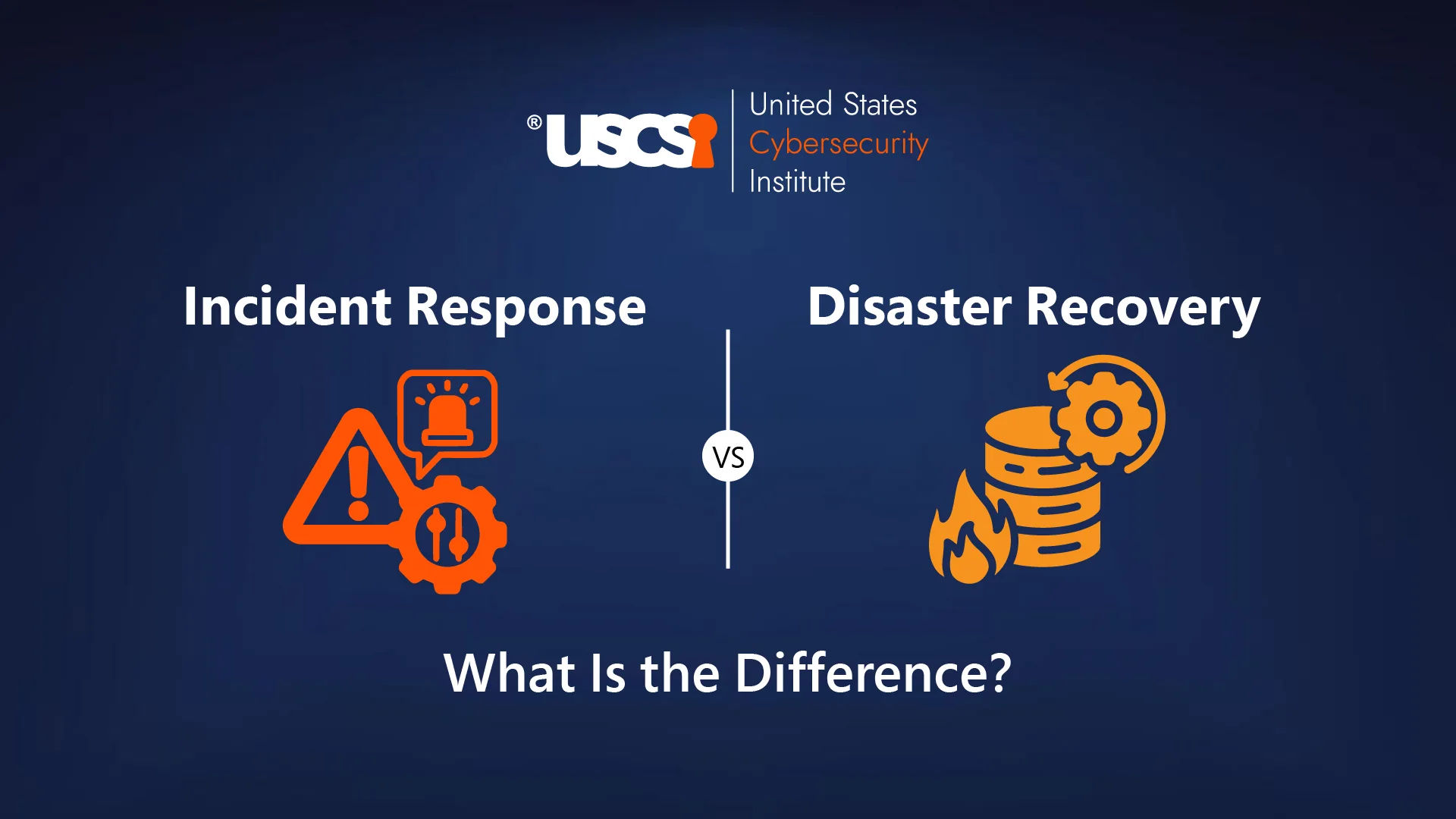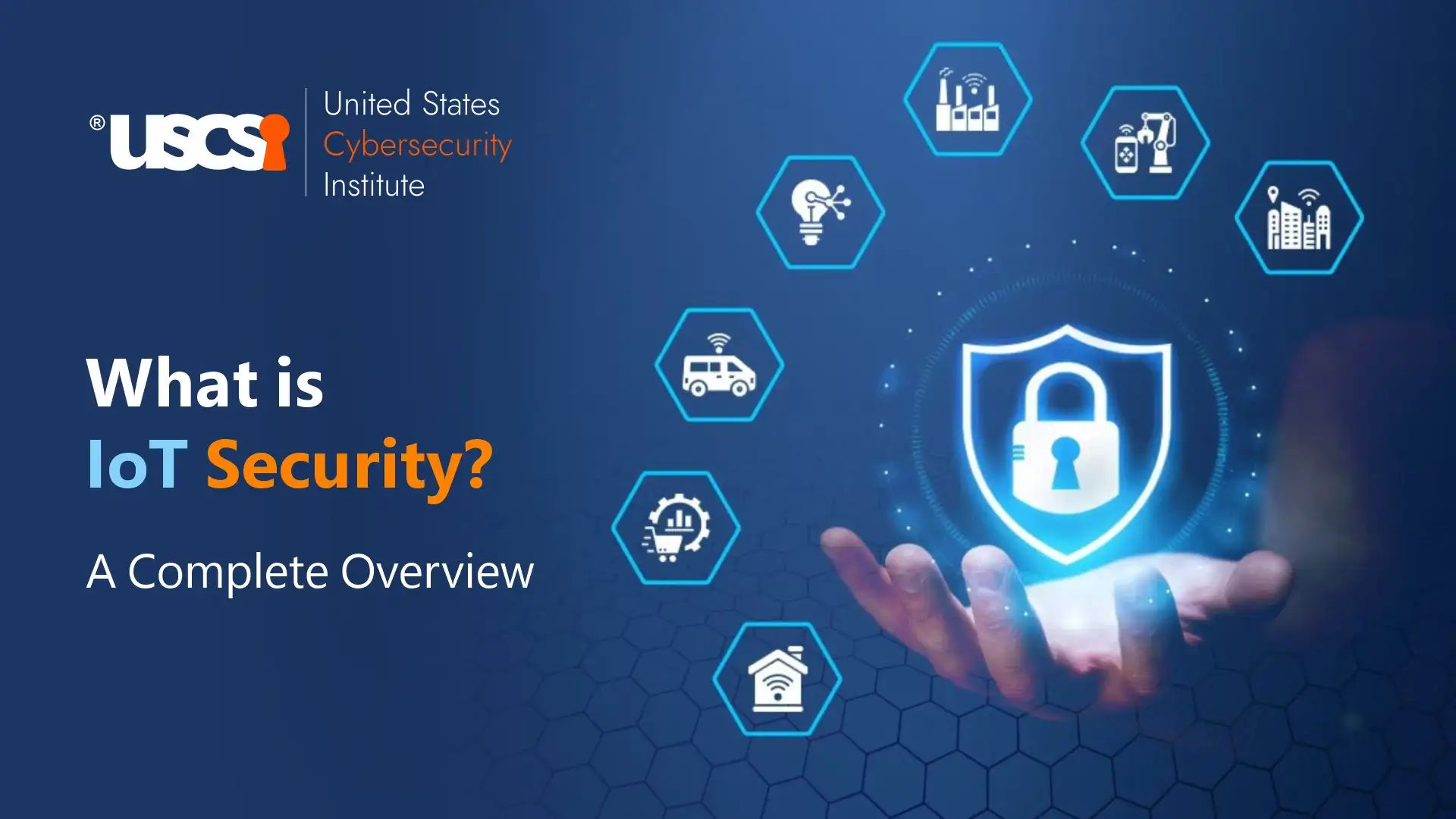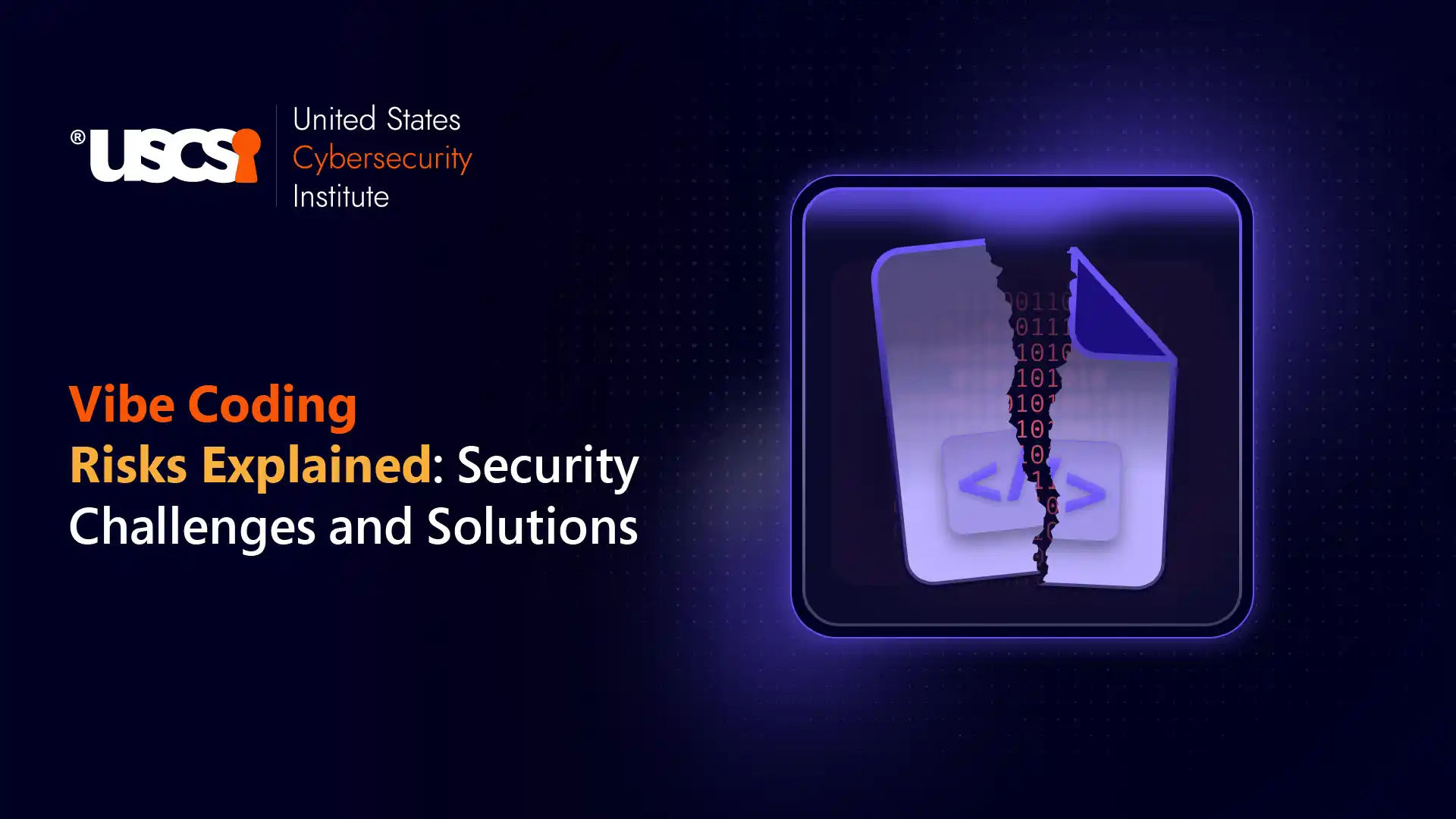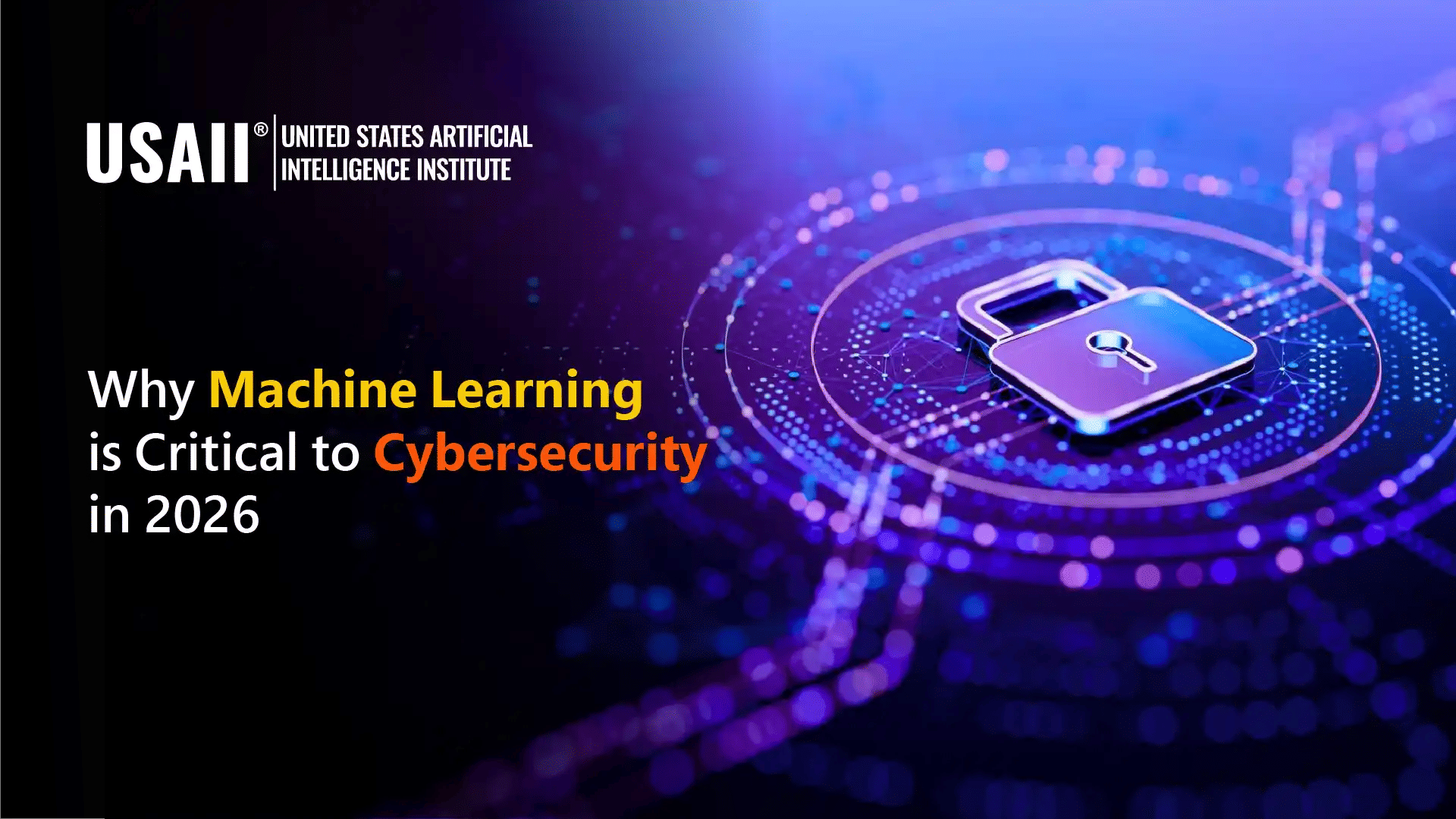

Cybersecurity Certification Roadmap: From Beginner to Expert
What if you could protect yourself against the worldwide shortage of cybersecurity skills with just one certification? According to the World Economic Forum's 2025 report, the cybersecurity talent shortage was reported to have grown by 8% since 2024, and two out of three organizations reported moderate-to-critical skills gaps in required essential skills. To put that in perspective, only 14% of companies feel confident they have people in place to be secure.
This blog will provide a step-by-step plan to grow the right cybersecurity skills, select relevant certifications, and start a career in arguably one of the world's top in-demand and growing fields.
Why Opt for a Cybersecurity Certification?
Cybersecurity certifications are a way to demonstrate your skills, giving you an edge in a competitive job market. As the threats of the digital world grow increasingly complicated, companies of all types and sizes are looking for individuals with security certifications to protect their systems, discover breaches, and respond to threats with confidence.
- Whether you are starting your career, changing career fields, or looking to enter into a leadership position, obtaining a cybersecurity course can help you:
- Learn the current tools, framework, and compliance standards
- Demonstrate your knowledge and legitimacy to your employer
- Earn an entry-level position as a Security Analyst, GRC Consultant, or a senior role like CISO
- Prepare for the future as threats, technology, and regulations change.
How to Obtain a Top Cybersecurity Certification? A Step-by-Step Process
Follow this clear roadmap to build foundational knowledge, choose the right role, and earn a certification that accelerates your cybersecurity career.
Step 1: Select Your Cybersecurity Career Path
Depending on your background, interests, and level of experience, cybersecurity has a multitude of career options. Whether you're starting fresh, moving over from IT, or want to contribute to the company's security strategy, here is how to find your niche:
1. Technical Roles: Entry-Level
More appropriate for entry-level or beginner in cybersecurity. These are job roles that are hands-on, along with monitoring, support, and defense at a systems level.
- Cybersecurity Support Associate: Monitoring, ticketing, and basic compliance
- Junior Cybersecurity Analyst: Monitor basic threats, report findings, and provide support to senior teams
- SOC Level 1 Analyst: Monitor real-time alerts and escalate issues for investigation
- IT Helpdesk, Security: User support while maintaining device/endpoint security
- Vulnerability Assessment Assistant: Running scanning tools and documenting risks under supervision
2. Advisory & Consultant Roles: Mid-Level
Best suited for those with professional experience in IT, business processes, risk, or compliance. They primarily deal with policy, risk frameworks, and advising management.
- Cybersecurity Consultant: Designs and advises on security policies and architecture
- GRC Analyst: Maintains Governance, Risk, and Compliance documentation and audits
- Data Privacy Officer: Ensure compliance with mandates in organizational information privacy policies
- Cyber Awareness Program Lead: Develops internal training and awareness programs.
3. Strategic & Leadership Roles: Advanced
As intended for senior leaders responsible for enterprise risk oversight, security infrastructure, or overseeing transformational initiatives.
- Security Architect: Designs secure networks and infrastructure
- Cybersecurity Strategist: Aligns cyber goals alongside business transformation
- Senior Risk Advisor: Manages enterprise-wide threat response and risk strategy
- Senior Cybersecurity Specialist: Leads end-to-end planning, design, and implementation of secure IT ecosystems across organizations, clients, and government entities.
Step 2: Build a Strong Foundation
It's crucial to concentrate on the appropriate knowledge domains and resources based on your desired professional path before pursuing a certification.
If You’re on the Technical Track, Start with:
- Understand TCP/IP, ports, protocols, and the OSI layers
- Familiarize yourself with firewalls, antivirus, SIEM, and vulnerability scanners
- Acknowledge Windows/Linux permissions, patching, and hardening
- Understand endpoint protection and password policies
If You’re on the Advisory Track, Focus on:
- Cybersecurity Frameworks: NIST, ISO 27001, COBIT
- Compliance Laws: Understand GDPR, HIPAA, PCI-DSS
- Audit & Risk Processes: Learn risk registers, gap analysis, and audit workflows.
- Security Communication: Translate technical issues into business terms.
If You’re on the Strategic Track, Develop:
- Infrastructure Security Knowledge: Cloud, Zero Trust, identity access, and management
- Enterprise Risk Strategy: Developing cross-functional programs
- Policy Leadership: Authoring and enforcing organization security policies
- Incident & Threat Management: Leading high-level incident responses and incident reviews.
Step 3: Select the Cybersecurity Certification That Aligns with Your Goals
The choice of cybersecurity certification will depend on your experience, interests, and objectives. USCSI® offers industry-recognized certification for professionals at every stage of their career path, all with flexible, self-directed paths to be able to develop your career and expertise at your own pace.
For Entry-Level or Aspiring Professionals
Certified Cybersecurity General Practitioner (CCGP™)
Perfect for beginners or experts wishing to get into the cybersecurity industry. Core topics like threat kinds, malware, phishing, IoT security, and digital hygiene are covered in this curriculum. It gives practical experience with important instruments and procedures.
Duration: Self-paced, 4–20 weeks
For Mid-Level Professionals and Cybersecurity Consultants
Certified Cybersecurity Consultant (CCC™)
Intended for working professionals experienced in IT, consulting, or compliance who are looking to transition into advisory roles within cybersecurity. Content covers cryptographic techniques, system security design strategies, compliance frameworks, and real-life applications.
Duration: Self-paced, 4–24 weeks
For Senior-Level Professionals and Strategic Thinkers
Certified Senior Cybersecurity Specialist (CSCS™)
Designed for seasoned experts who oversee cybersecurity strategy, create safe infrastructures, or collaborate with organizations and governmental bodies. Advanced concepts, issues related to new technologies, and strategic applications are all included in the program.
Duration: Self-paced, 4–24 weeks
Step 4: Core Competencies Needed to Excel in Cybersecurity Certifications
You must develop a solid foundation in critical capabilities that apply to a variety of professions in order to obtain a cybersecurity certification. These qualities include technical proficiency, critical thinking, and knowledge of security principles.
- Technical Skills: Awareness and understanding of networks, system configurations, and tools like firewalls, endpoint protection, SIEMs, and scanning tools.
- Ethical Awareness: Adhering to responsible data handling, security disclosure, and enforcement of organizational policy.
- Lifelong Learning: Staying updated on new threats, security technologies, and changes in the industry.
Step 5: How to Get Certified
Now that you've selected your cybersecurity path and established your basic knowledge, it's time to obtain certification. The process is flexible, fully online, and intended to accommodate professionals at any level.
How to Earn Certification with USCSI®
- Sign up at uscsinstitute.org, and select your level of certification: CCGP™, CCC™, or CSCS™.
- Then, you will have access to your self-paced program, including eBooks, video lessons, labs, and case-based learning.
- After you finish preparing, you will be prepared to leverage both knowledge and applied skills with real-world cybersecurity problems.
- You can then schedule your USCSI® exams online, and they will be administered through a secure proctoring program.
Exams will be multiple-choice and competency-based questions to enable you to demonstrate your understanding and application of key cybersecurity concepts.
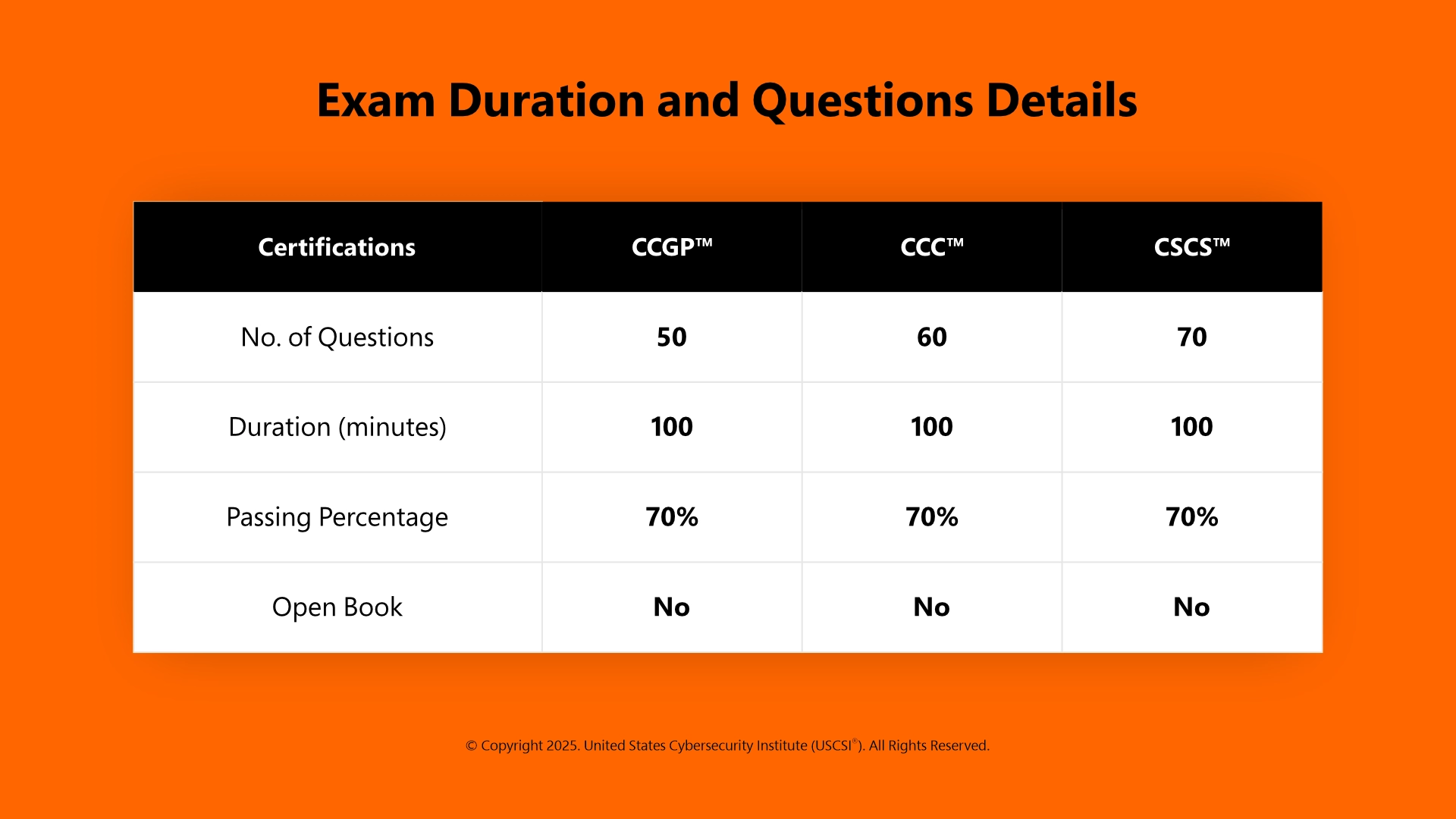
You will receive a validated digital certificate and badge upon passing the test, which is perfect for displaying your accomplishment on professional portfolios, LinkedIn, and resumes.
Step 6: Use Your Certification to Land Cybersecurity Jobs
Earning a cybersecurity certification sends a clear message to employers that you are validated to tackle real-world security issues. Once you receive your certification, you will be entirely eligible for various cybersecurity jobs as per your area of expertise and level of experience:
- Cybersecurity Intern/Junior Analyst
- Network Security Engineer
- Security Operations Center Analyst
- Cybersecurity Consultant
- Governance, Risk, & Compliance Professional
- Penetration Tester/Ethical Hacker
- Security Architect
- Cyber Risk Strategist
If you combine a top cybersecurity certification with a strong portfolio of labs, projects, or even industry blog posts, along with showcasing your skills on LinkedIn or GitHub, you can quickly start or grow your career and skills in the cybersecurity industry.
Step 7: Why USCSI® Certifications Are a Smart Choice
USCSI® has future-ready cybersecurity certifications designed to meet the needs of professionals, organizations, and institutions through flexible, academic, and expert-provided learning solutions that align with industry standards.
- Global Recognition: USCSI® certifications, which offer mobility, are recognized in leading industries and sectors in 150+ countries to allow professionals to take the exams virtually anywhere in the world.
- Flexible & Self-Paced: The learning model is entirely online and is designed for completion within 4-24 weeks with only 8-10 hours of study time per week.
- Vendor & Industry Neutral: Programs are built with a cross-platform, cross-sector, and cross-role perspective to make sure that your certification is relevant regardless of your tech stack.
- Expert-Curated Curriculum: There are over 180+ hours of applied learning content that have been developed and endorsed by 20+ global cybersecurity SMEs.
- Digital Credentials: Each certification comes with a verifiable certificate and a dgBadge that can be posted on LinkedIn, resumes, and portfolios.
- Enterprise Learning Solutions: USCSI® offers customized programs for corporate teams, universities, and any institution with a collective learning opportunity.
- Ethics & Governance Focused: Courses are designed to meet global security frameworks, compliance models, and ethical practices within the realm of cybersecurity.
- Membership Standards: USCSI® is a proud member of the Institute of Credentialing Excellence, a global leader in establishing standards around certification quality and credibility.
With USCSI®, you do not just receive certification; you earn a credential based on expert design, credibility, and ethics.
Conclusion
A successful career in cybersecurity may begin with curiosity, but it can morph into a successful career through continuous learning, adaptability, and professional credentials. The truth is, credentials are valuable because they help establish your credibility and demonstrate your knowledge, while also facilitating the attainment of high-impact roles within organizations that continually prioritize heightened digital security and resilience.
USCSI® provides globally recognized programs with defined learning pathways for all stages of your career, from beginners and consultants to senior strategists and cybersecurity leaders.
Are you ready to protect your future with a cybersecurity certification? Sign up now, and take the next steps with USCSI® to become a trusted cybersecurity professional.

